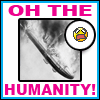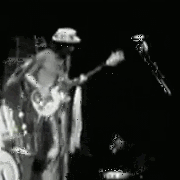|
Is Jared Diamond considered good in general? I know GGS is rather widely flawed, but how is Collapse and the rest of his work?
|
|
|
|

|
| # ? May 14, 2024 07:16 |
|
DerLeo posted:Is Jared Diamond considered good in general? I know GGS is rather widely flawed, but how is Collapse and the rest of his work? There are lot of people who likes his work. Have you read the GGS? If not, I'd recommend that as his defining book. Collapse is more of the same, so if you liked GGS, you'll probably enjoy collapse. (and reverse, if not).
|
|
|
|
DerLeo posted:Is Jared Diamond considered good in general? I know GGS is rather widely flawed, but how is Collapse and the rest of his work? I'm currently finishing off Collapse. I think it's a very interesting general overview of the subject, and Diamond seems to try very, very hard to reply to possible criticisms of his five-factor model. It's hard to tell possible flaws of the book (apart from the habit of over-explaining things), as I'm not a specialist in any of these societies, but there is some doubt in my mind over his choice of societies to analyze. Nevertheless, it is a book of popular science, so if you're looking for a scholarly discussion, you can use this as a good starting point, then hit the internet looking for criticisms and counter-arguments to (hopefully) get a better overview. There's a thread at r/anthropology about the trustworthiness of Diamond that might be interesting to you: http://www.reddit.com/r/Anthropology/comments/18usqt/can_you_trust_jared_diamond/
|
|
|
|
AdjectiveNoun posted:Does anyone know of any good books about Pre-Islamic Persia? Particularly the Sassanid/Sasanian Dynasty? Touraj Daryaee's Sasanian Iran (224-651 CE): Portrait of a Late Antique Empire and Sasanian Persia: The Rise and Fall of an Empire are both OK, but not great. They're pretty dry and clearly written by someone who's not a native Englssh speaker, and neither really gave me the feel of Sasanian culture like some good introductions to Classical cultures do, but given the lack of books on Iran of this period in English, they're still not bad places to start. For something that's a much more enjoyable read, Justinian's Flea is one of the most gripping historical works I've ever read. The book is about how the Justinianic Plague changed the world, and while it's focused more on the Byzantine Empire, there's a quite good introduction to Sasanian Persia, the reign of Khusro II, and the empire's collapse.
|
|
|
|
I'm about 100 pages away from finishing Shelby Foote's The Civil War: A Narrative, which took me around a year due to being busy with a new job and taking a break of a couple of months after I finished the second Volume. It feels like I went through an epic journey and can't wait to finish it (and re-read it again in a couple of years time).
|
|
|
|
Tekopo posted:I'm about 100 pages away from finishing Shelby Foote's The Civil War: A Narrative, which took me around a year due to being busy with a new job and taking a break of a couple of months after I finished the second Volume. It feels like I went through an epic journey and can't wait to finish it (and re-read it again in a couple of years time). Did the same thing last year. It's a hell of an experience. "Soon now, that hundred miles of Virginia with its glittering rivers and dusty turnpikes, its fields of grain and rolling pastures, the peace of generations soft upon it like the softness in the voices of its people, would be obscured by the swirl and bank of cannon smoke, stitched by the fitful stabs of muzzle flashes, until at last, lurid as the floor of hell itself, it would seem to have been made for war as deliberately as a chessboard was designed for chess."
|
|
|
|
One thing I'd note for now is that I just finished reading about the Army of Northern Virginia surrendering and there's only 75 pages left or so: considering the detail and length of everything else in the book, it seems to me that isn't large enough to really give anything more than a rushed detailing of conditions post-war or even touch upon the reconstruction with anything other than a brief summary.
|
|
|
|
If any one has any interest in the Ottoman Empire, go read The Ottoman Centuries by Lord Kinross. It really gives a great view from start to finish of the Ottoman empire and is not dry as hell. Also 1453 by Roger Crowley is a good read as well, detailing the fall of Constantinople to Mehmet II. It really gives a good look what went into laying siege to a major city even when its empire was not even a shadow of what it ounce was.
|
|
|
|
Incidentally, there's a band called H.E.R.R. which has an album called The Winter of Constantinople. I think it's the only album in existence which is themed around the fall of Constantinople.
|
|
|
|
I was reading Freedom from Fear for a history grant. It's another one of the huge books from the Oxford American History series; I only got through the first half of it (the Great Depression part) before taking a break from it. I'll go back at some point and read the WWII part but I got really bogged down in the "will they won't they" arguments about going to war in the 30's and 1940-41. I liked the Depression part, to a point. Freedom from Fear is definitely a political history book with some elements peeking out here and there of social or cultural history. Someone on Goodreads recommended reading The Greatest Generation if one wanted more of a social history. The author does a good job highlighting exactly what Hoover and Roosevelt actually did, though, given that the master narrative is generally "Hoover sucked and did nothing" and "Roosevelt is the God that got us out of the Great Depression." Edit: Anyone have any thoughts on The Greatest Generation?
|
|
|
|
Does anyone know a good book for historically significant speeches?
|
|
|
|
DerLeo posted:Does anyone know a good book for historically significant speeches? Dover has a bunch of them, like this one full of 20th century speeches, and they're all pretty cheap, too.
|
|
|
|
Finally managed to finish Shelby Foote's Civil War and it did seem to provide very few details on the reconstruction, apart from being very critical of it. With the amount of detail that the ante-bellum period was described in, I was expecting something similar about the post-bellum period: guess I'll need to find another book about it. Does anyone have any suggestions for books about the reconstruction and especially about the Grant administration? In the meanwhile, I've started reading The War of 1812 In The Age of Napoleon, which centers around the political/military aspects of the War of 1812, from the attempted invasion of Canada to the Battle of New Orleans. Has anyone read this and if so, what are your thoughts? I'm also looking for a book on the French & Indian Wars, any suggestions?
|
|
|
|
Tupping Liberty posted:Edit: Anyone have any thoughts on The Greatest Generation? UUggghhhh. If you want an idealized view of THE GREATEST GENERATION TO EVER EXIST WHO ARE BETTER THAN EVERY ONE ELSE then go read it. I would not recommend it at all if you want an honest look into social issues of the time and hardships people went through. Unless you just want patronizing stuff like, "they didn't have enough money/it was war time, so they worked real hard for the family thats good values." edit: Tom Brokaw can jump in a lake
|
|
|
|
Tekopo posted:I'm also looking for a book on the French & Indian Wars, any suggestions? I think the most well-known and respected recent history is Crucible of War: The Seven Years' War and the Fate of Empire in British North America, 1754-1766 by Fred Anderson, but my favorite is Empires at War: The Seven Years' War and the Struggle for North America by William Fowler
|
|
|
|
I hate this book so much, so let me say a few more things about it. Tom Brokaw looks back with rose tinted glasses to his parents generation who were all white and lived in nice little picket fenced houses. When any minorities are mentioned, it is to point out the few exceptions to the racism and sexism that existed at the time. The labor movement and their gains and losses do not exist, the struggles of the latino immigrants are not present, sexism is shown as good american values, etc. etc. Tom Brakow is a shill for that generation and anything he says and writes about them should be seen as hyperbolic patriotic grandstanding.
|
|
|
|
No one every went broke writing books telling people how awesome they are.
|
|
|
|
withak posted:No one every went broke writing books telling people how awesome they are. And you do not make a good representation of past events by pandering. Like I said, if you want a rose tinted view of the past you will enjoy it. If you want to actually learn about social issues and things happening on the home front look elsewhere. Edit: Any one have an recommendations for books covering the East India Companies? How about south american indepindence? Stravinsky fucked around with this message at 20:54 on Mar 4, 2013 |
|
|
|
Tupping Liberty posted:I liked the Depression part, to a point. Freedom from Fear is definitely a political history book with some elements peeking out here and there of social or cultural history. Someone on Goodreads recommended reading The Greatest Generation if one wanted more of a social history.
|
|
|
|
Thanks all - I'd rather not purchase a book to discover that myself, and that is def. not what I want.
|
|
|
|
If you want a social history, maybe check out some of Studs Turkel's work?
|
|
|
|
Stravinsky posted:Edit: Any one have an recommendations for books covering the East India Companies? How about south american indepindence? I've only read The Honourable Company: A History of the English East India Company by John Keay, which was pretty boring but thorough and apparently accurate and well received by historians. It seems like there should be a more general study of the whole history including the Portuguese and Dutch and French companies, but I don't know what that would be.
|
|
|
|
The Monkey Man posted:Are there any really good books about the Roma? What specifically are you looking for? Just a general history and overview? I can think of a few academic publications that might do the trick rather than a book. I've a done a bit of research in school on the Roma (not an expert at all) and have several friends in Romania I could ask, but I would need something more specific to give you a better answer, I think.
|
|
|
|
dokmo posted:I've only read The Honourable Company: A History of the English East India Company by John Keay, which was pretty boring but thorough and apparently accurate and well received by historians. It seems like there should be a more general study of the whole history including the Portuguese and Dutch and French companies, but I don't know what that would be. I was going to second this. It's not complete by any means but it is a decent layman's look the British Company. Merchant Kings is poo poo however, don't read it. Peter Newman's Empire of the Bay is pretty interesting if you would want to read about the Hudson's Bay Company and it's various rivals in North America.
|
|
|
|
Anyone know any good books about Cuban history, particularly under Castro?
|
|
|
|
sbaldrick posted:I was going to second this. It's not complete by any means but it is a decent layman's look the British Company. Merchant Kings is poo poo however, don't read it. What in particular did you not like about it? The Amazon reviews are all pretty positive, though there's only 5 so it's not exactly a huge sample size. While I haven't read any of the EIC-specific books, Keay's India: A History is really good. It provides a lot of information on pre-colonial India, something that doesn't get discussed a whole lot. If Honourable Company is near that quality I'll probably end up reading it at some point. Punished Chuck fucked around with this message at 04:29 on Mar 6, 2013 |
|
|
|
barkingclam posted:If you want a social history, maybe check out some of Studs Turkel's work? This. Go read The Good War and Hard Times by Turkel. Both are about the depression era/WW2 from an American Perspective and completely blow the poo poo out of TGG. When you're done and if you want more social history, Cooks Japan At War is another excellent social/oral history. Handsome Ralph fucked around with this message at 05:39 on Mar 6, 2013 |
|
|
|
Tupping Liberty posted:I was reading Freedom from Fear for a history grant. It's another one of the huge books from the Oxford American History series; I only got through the first half of it (the Great Depression part) before taking a break from it. I'll go back at some point and read the WWII part but I got really bogged down in the "will they won't they" arguments about going to war in the 30's and 1940-41. I believe we are in the same grant. Was it just me or is Kennedy in love with his Thesaurus for no apparent reason. On of the best books from the grant had to be A Brilliant Solution http://www.amazon.com/Brilliant-Solution-Inventing-American-Constitution/dp/0156028727/ref=pd_sim_b_37 Although I feel Berkin plays cheerleader for everyone, I think the focus on the human factor this book contains is what is lacking in most on the subject.
|
|
|
|
Any recommendations for a history of Caribbean Hispanic immigration/integration into the U.S.? I'd prefer something like The Warmth of Other Suns, but I'll take whatever I can get.
|
|
|
|
Ambulocetus posted:So, how about the War of 1812? I'm looking for some kind of an overview. "The War of 1812" by Donald R. Hickey is good. It isn't terribly engrossing in the way its written, but it is definitely suitable as an overview.
|
|
|
|
Is there any good overview of rural history of the world? I've looked on wiki, but it's mostly stuff like "Peasantry in Northern England, 1452-1599". I'm mostly interested in social history - the lives in rural communities throughout the world in different times - but agricultural overview would be good, too.
|
|
|
|
Burning Rain posted:Is there any good overview of rural history of the world? I've looked on wiki, but it's mostly stuff like "Peasantry in Northern England, 1452-1599". I'm mostly interested in social history - the lives in rural communities throughout the world in different times - but agricultural overview would be good, too. You might not like my answer, but you might want to start looking at some textbooks. What you are asking for is an extremely broad topic as things were really different for people even 5 miles down the road from each other in some cases. And coupled with time you have changing laws, fashion, religion, events and the like which changed the realities of these people. This tends to be very hard for most books to portray in such a broad fashion without narrowing it down a bit. Plus most books are still in love with the great man theory. Get a (older edition) history textbook about an area you are interested in the most. Textbooks tend to actually look at the lives of peasantry/middle class and how events affected their lives.
|
|
|
|
Thanks! My major is in sociology, so textbooks don't really scare me that much - it's mostly a question of price and availability, as the area I'm most interested in is Eastern Europe. A lot of people have done rural sociology research there after the collapse of communism, but the only book about actual rural history of the area I've been able to find so far is "Villagers and Lords in Eastern Europe, 1300-1800". Even in Russian there's only a couple of books available about rural history, but they've been translated and deal with Western Europe. Is there any reason why rural history seems to be neglected by (popular?) historians? Is it lack of interest? Lack of available data? It just seems strange that the 90% (just a guess) of people who have lived outside of towns and cities throughout history now exist only as a footnote to the "real" history.
|
|
|
|
Burning Rain posted:Is there any good overview of rural history of the world? I've looked on wiki, but it's mostly stuff like "Peasantry in Northern England, 1452-1599". I'm mostly interested in social history - the lives in rural communities throughout the world in different times - but agricultural overview would be good, too. I've never cracked any of them open, but the Foxfire series is about customs in rural Appalachia.
|
|
|
|
 The Great Arab Conquests by Hugh Kennedy is a good book on a hard to find subject. The author should be commended for sorting through all of the Arab narratives and contemporary events in order to produce an easy to read book on momentous events. Last year, I read Livy that is available through the Penguin Classics. It is tedious sometimes, but it gives insight into the way the Romans saw their history.  Soldiers and Ghosts by JE Lendon should be the first choice for anyone interested in the history of Greek and Roman warfare. It contrasts both of them through their development and contrasts the reality with the ideal they were trying to achieve.
|
|
|
|
Burning Rain posted:Is there any reason why rural history seems to be neglected by (popular?) historians? Is it lack of interest? Lack of available data? It just seems strange that the 90% (just a guess) of people who have lived outside of towns and cities throughout history now exist only as a footnote to the "real" history. Yes to all of the above. Plus you have to also realise how history has been treated for most of well history. History being treated as a science where you learn about the past is kinda a recent invention. Largely history as recent as the 50s and 60s were just morality storys and look how their virtues and failings brought upon the rise/fall of that civilization. And this played right into the great man theory where it is thought that there are some people who shape the course of mankind/destiny by being well, great men. And people ruin civilizations by not being great. You can see this playing out in recently written history books just because the precedent that has been placed that's hard to shift away from. Hell, when I was originally taught about the cold war I was told that the US won because of it great presidents who were God fearing hardworking people, while those commies fell because they were godless warmongers who were lazy and just despicable. A real look at "the people's" lives only really started around the rise of socialism along with investigative journalism during the industrial revolution. This is also reflected in history books by being the one area most author's actually care to really talk about someone that was not a noble. Stravinsky fucked around with this message at 05:32 on Mar 11, 2013 |
|
|
|
And lets all be honest here, history has always been much like today's tabloids. You do not want to read about some random guy off the street who has the same life as you. You want to know who Katy Perry is dating and who King Henry newest wife is (as well as the fate of the last couple of wives). Edit: they way that we view history and how it has changed over time is cool and interesting. Stravinsky fucked around with this message at 06:41 on Mar 11, 2013 |
|
|
|
Tekopo posted:Does anyone have any suggestions for books about the reconstruction and especially about the Grant administration? The classic is Columbia University Professor Eric Foner's "Reconstruction: America's Unfinished Revolution, 1863-1877." He has a shorter history if you can't stomach all 700 pages, but if you read all of Foote that shouldn't be an issue. Reconstruction history like the war itself is a bit contentious. Basically Foner's book in 1988 was a response to what is called the Dunning School of history which had prevailed in the first half of the twentieth century. The Dunning School argued that Reconstruction wrecked the South and that its central failing was allowing blacks to vote. The Dunning School implicitly argued that blacks inability to govern themselves made segregation necessary to save the South. Foner trys to rebut this and suggests that making blacks equal was a noble goal and as a result he ended up seeing Reconstruction largely as a positive policy that was abandoned due to Southern hostility.
|
|
|
|
stawk Archer posted:
I've got a couple of these volumes. They're enjoyable reads and I liked the more colorful parts (the last king being expelled from Rome and Hannibal crossing the Alps come to mind), but I know what you mean: there's only so many times you can read about who was Quaestor each year. I'm also a big Plutarch guy, although I wish someone (Oxford? This would be right up your alley) would made a modern translation that preserves the way Plutarch contrasted his lives, not having them divided up by era. I understand why Penguin did that (it's easier for general readers who only want to read about Casear or Alexander the Great, but couldn't care less about the other), but I'm surprised the only full translation out there is Dryden's. Can anyone recommend any books about Alexander the Great? I'm leaning towards Robin Lane Fox's biography, but I'm willing to be persuaded to another one.
|
|
|
|

|
| # ? May 14, 2024 07:16 |
|
Burning Rain posted:Is there any reason why rural history seems to be neglected by (popular?) historians? Is it lack of interest? Lack of available data? It just seems strange that the 90% (just a guess) of people who have lived outside of towns and cities throughout history now exist only as a footnote to the "real" history. And to add to what Stravinsky said, I think there's a decent argument to be made that life for rural farmers didn't really change a whole lot between, to pick completely arbitrary dates, 3000BC and 1600AD. Certainly tons of interesting stuff happened in those times, polities rose and fell, and religions came and went. But a whole lot of the story would seem to be 'be a subsistence farmer, try not to get all your surpluses taken by your political masters, pray that you and your sons don't die in the army, and hope that another army (friendly or hostile, doesn't much matter) doesn't happen to march past your farm, take all your stuff and kill you and your family.' That aside, I've almost finished Guy Halsall's Barbarian Migrations and the Roman West. Basically a textbook, but good lord is it ever fascinating. Best look I've ever had at how the Roman political class operated, and a far more plausible explanation of the end of Rome In The West. I had to make notes along the way to keep track of the personalities of the period though, since I wasn't overly familiar with it before I started reading. I particularly liked the line at the end of a chapter to the effect of: It would not be correct to say that the Roman Empire was killed or assassinated. Instead, it accidentally committed suicide. PittTheElder fucked around with this message at 21:43 on Mar 11, 2013 |
|
|
































 Yes, it's like a lava lamp.
Yes, it's like a lava lamp.